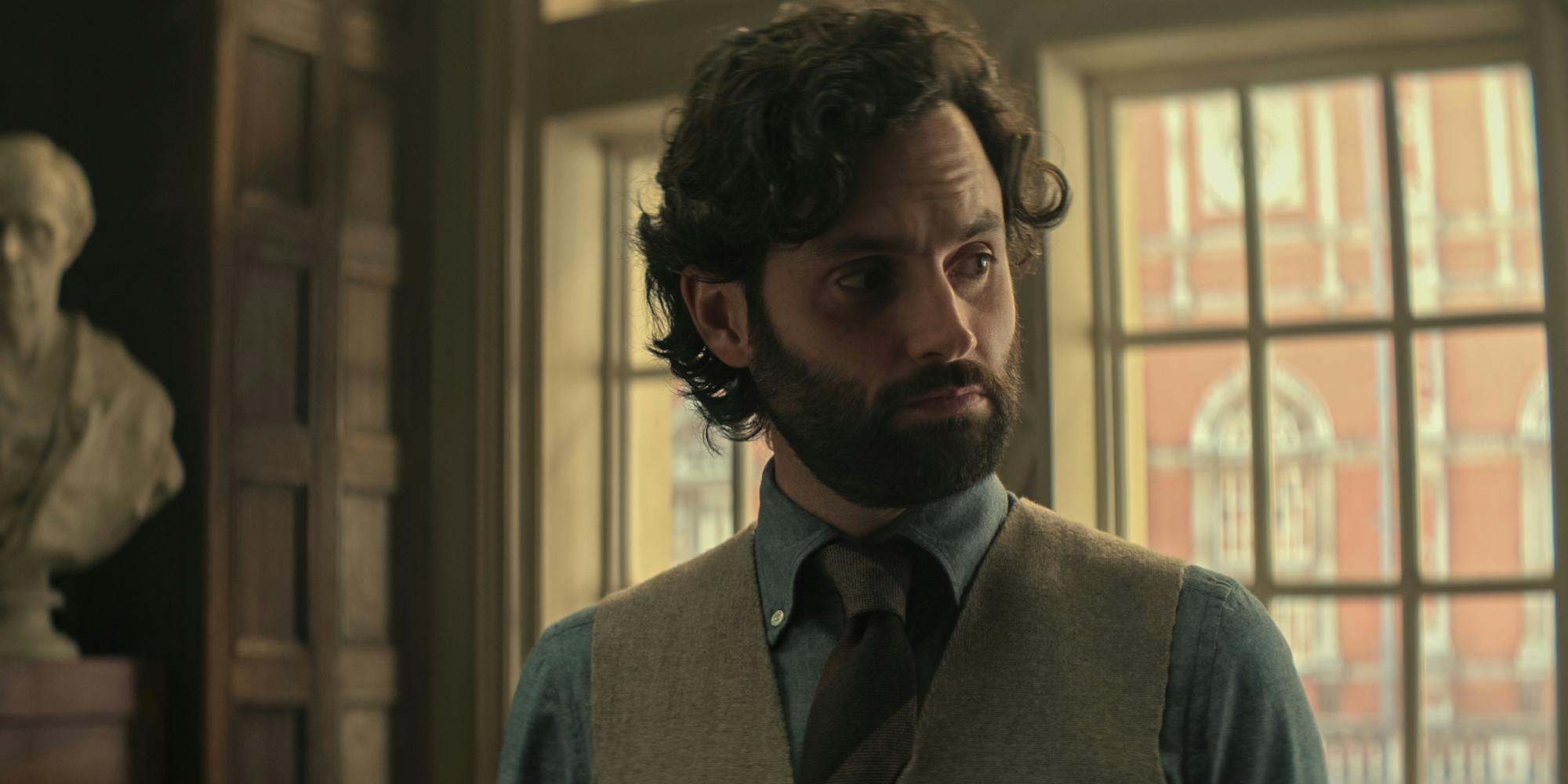The fourth season of You, which takes serial killer Joe Goldberg (Penn Badgley) to London and debuted on Netflix last week, has fewer sex scenes than in previous seasons. But the reason for that, a request made by Badgley, is sparking yet another round of debate and discussion about the presence of (or lack thereof) sex scenes in modern movies and TV shows.
Badgley’s comments came courtesy of his podcast Podcrushed. Asked to talk about the decision in more detail, Badgley said he initially asked You showrunner Sera Gamble if could do no more intimate scenes in the show and how he didn’t want to be boxed into one type of role.
“This is actually a decision I made before I took the show,” he said. “I don’t think I’ve ever mentioned it publicly. But one of the main things is like, do I wanna put myself back in a career path where I’m just always a romantic lead?”
@podcrushed Watch or listen to the full recap of s4 part 1 of You on Podcrushed! YouTube/spotify/Apple Podcasts etc. #yous4 #younetflix #pennbadgley ♬ original sound – Podcrushed
Referencing his marriage to Domino Kirke, Badgley also touched on the importance of being faithful and how it led to him not wanting to film those scenes anymore.
“Fidelity in every relationship, and especially my marriage, is important to me,” Badgley said. “And, yeah, it just got to a point where I didn’t wanna do that.”
While You’s fourth season didn’t completely nix those types of scenes (which Badgley acknowledged might be an impossible ask), the number was drastically reduced. And Badgley praised Gamble for being supportive and her willingness to accommodate his request.
In recent years, it’s become increasingly common for actors to assert their level of comfort when filming intimate scenes, which is often demonstrated by the presence of an intimacy coordinator who helps to choreograph those scenes.
Badgley’s comments struck something of a nerve. Some people pushed back at Badgley’s explanation linking intimate scenes in film and TV to fidelity, pointing out that those kinds of sex scenes are closer to a highly choreographed fight. Others praised him for setting boundaries and how refreshing it was that those boundaries were respected.
“This is such a good example of how boundaries can change even on season 4 of a project,” Jessica Steinrock, who posts as @intimacycoordinator on TikTok, said.
@intimacycoordinator #stitch with @podcrushed thank you for sharing this story ❤️ #intimacycoordinator #younetflix #boundaries #actor #pennbadgley #you ♬ original sound – Intimacy Coordinator
But for some, it didn’t take much of a leap for people to praise Badgley’s move to question the necessity of explicit sex scenes in movies and shows.
“It really raises the question, are intimacy scenes, like really explicit intimacy scenes, actually necessary for the plot of the show?” @easleyeffect, who also brought up the recent example of how the Netflix movie You People included a kiss between the film’s leads that was reportedly never filmed and instead created with the use of CGI, asked. “Like, back in the day, they used to show them kind of kissing a little bit, they get in the bed, and then it cuts to like the next morning.”
@easleyeffect ♬ original sound – ⋅⋆ ♡ CAMRYN ♡ ⋆⋅
The argument that movies and shows shouldn’t have sex scenes that aren’t completely relevant to the plot—or that we shouldn’t have sex scenes in movies or TV at all—is emerging, as is a growing nostalgia for the movies from 60-70+ years ago that relegated those sex scenes to subtext.
As both people who bemoan the lack of sex scenes or real intimacy in modern movies and TV and those familiar with Hollywood history are quick to point out, those older movies weren’t vaguer about what they did and didn’t show because of an artistic decision. It was because of the Hays Code, a set of self-enforced censorship guidelines in Hollywood that dictated what wasn’t allowed to be shown in movies, which largely affected the films that were made for several decades starting in the 1930s.
Among those guidelines were, to name a few, explicit sex scenes and violence, interracial relationships, and homosexuality. Those rules, for decades, affected and dictated the kinds of movies that were made. For some, seeing the suggestion of bringing a version of the Hays Code back could be a major detriment to the kinds of stories being told.
But the idea of sex in movies as a recent development also erases or ignores (intentionally or not) another part of Hollywood history: Before those rules went into effect, pre-code era films could get racy or raunchy.
With the debate over the use of sex in movies and shows roaring its head online every few months, we haven’t exhausted those talking points yet. But as someone like Badgley’s views may evolve, so will those conversations.

